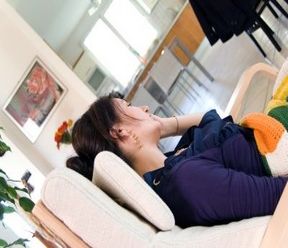Category
| Beauty , Fashion & Style |
| Jobs & Career |
| Travels |
| RelationShip |
| work & Life |
| Health & Wellness |
| Hot Stuff |
| Leisure |
| opinion |
| yoga |
| Vastu |
| Wellness & Beliefs |
Entries archive
Our poll
Main » 2010 November 10 » Stroke is now a past ailment
10:52 AM Stroke is now a past ailment |
 A new drug therapy could unlock paralysed arms and legs of stroke and head injury victims and radically ease their lives.
The discovery by researchers from the University of Otago, New Zealand, and University of California, US, can also restore mobility of a stroke victim by 50 percent. If successfully tested on humans, the therapy would provide new hope for people who suffer ischemic stroke, which accounts for about 80 percent of all strokes. At present, the class of compounds are not advanced enough to be used on a prolonged basis in humans as they are known to affect the kidneys, reports journal Nature in its online version. Andrew Clarkson, study co-author and psychologist from University of Otago, said the drug compound, known to enhance cognition, when administered to mice via a slow-release pump implanted under the skin over a six-week period, would re-activate neurons in the brain responsible for limb function. The neurons initially appeared to be dead or dormant after a stroke, according to an Otago statement. Treatment of the mice was begun three days after the stroke event, which in human terms equates to about three weeks. The researchers needed to wait until the initial stroke event was over and the damaged areas surrounding the stroke site had settled into a state of dormancy before administering the compound. After six weeks of treatment with the drug compound, a "dramatic" restoration of mobility of the limbs was then observed. Mice which received the compound consistently regained an extra 50 percent of gross motor limb mobility. This was in addition to the 10-15 percent gain in motor function shown normally to occur in mice which are not treated with the drug compound. "This also provides hope for those with traumatic head injuries - the brain mechanisms of repair are similar so there is potential for this to work for them too," Clarkson said. |
|
|
| Total comments: 0 | |
